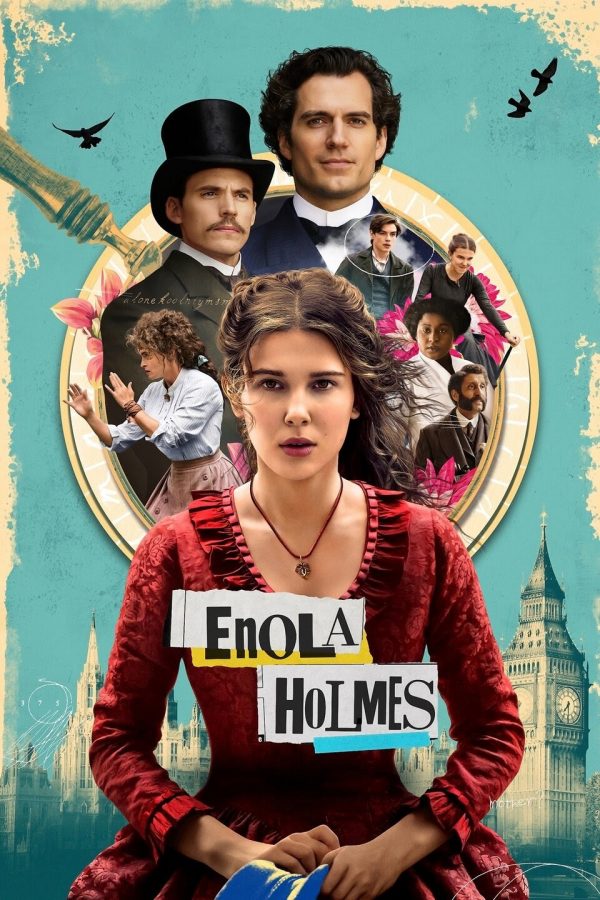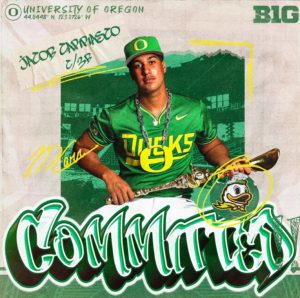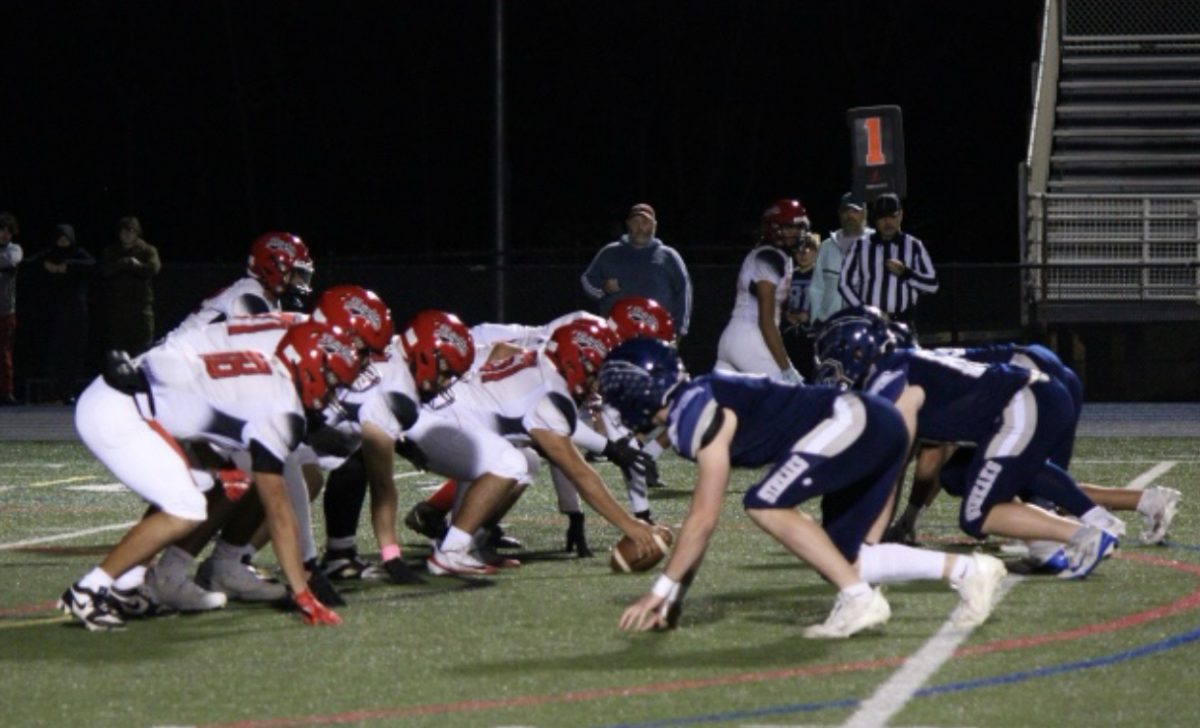“Enola Holmes” is Sherlock Holmes with a twist
November 29, 2020
Harry Bradbeer’s new film “Enola Holmes” follows the younger sister of Sherlock and Mycroft Holmes as she tries to find her missing mother. In this intriguing reimagining of the Sherlock family, the Holmes house was left to Enola’s mother after her husband died and her sons left for college. Enola’s mother is eccentric and unique in her views about what Enola should learn, so she teaches her how to fight, has her read extensively, and teaches her about science and math.
But that all changes when Enola’s mother disappears. When Sherlock and Mycroft arrive, it is revealed that Mycrot has custody over Enola if her mother is indisposed. He is determined to send her to a boarding school with strict rules which Enola disagrees with because of her well-rounded education and feminist values. After finding clues her mother left her, she sets off to find her mom. On the way, she meets a boy who is almost murdered on the train she is riding and helps him escape his purser. As Enola tries to uncover where her mother is, she is interrupted by trying to find who is chasing the boy, Tewksbury.
I observed that this movie has strong messages about gender roles and women’s role in upholding the patriarchy. Enola often breaks gender roles and this is because she was never taught them. She doesn’t follow gender roles or have a concept of gender norms because her mother raised her without them. So when she is sent to a boarding school where she is expected to learn to act “ladylike” and embroider and is not allowed books or any other things she is used to, she does not fit in well. She is contrasted with the other girls who were told how to be their whole lives. This makes the point that gender norms are taught.
It also has a theme of showing that some women help to uphold the patriarchy. This is not to say the movie blames the patriarchy on women, but it makes the point that women, especially upper class, privileged women, can be complicit in the patriarchy. This is shown when it is revealed that the person that wants Tewksbury dead is a woman who doesn’t want him to be able to claim his seat in the parliament. This is because she knows he will vote that women should be able to vote, and although she is a woman, she doesn’t want women to vote because she wants to uphold traditional values. I think the movie deals with these topics very well and in an interesting way.
As people in the UK were never denied the right to vote because of their race, this movie is very different from a lot of American movies set in the same time period. While the US suffragette movement was very white and often racially exclusive, in Britain, women of all races fought for the right to vote together. The movie does a wonderful job having a diverse cast while maintaining the accuracy of what race relations were like for the women’s rights movement in Britain. I was confused by the fact that women of all races gained the right to vote at the same time, as I did not know much about the history of suffrage in the UK. I thought it was interesting to explore that movement in contrast to American suffrage.
I thought the casting of this movie was fantastic. Helena Bonham Carter was the best choice for the smart, eccentric mother of the Holme’s children. She fits into the character very well and conveys the equal parts secretive, revolutionary and caring mother perfectly. Helena Bonham Carter as a person comes off as eccentric and tends to play those kinds of roles, which makes her perfect for the role. I also appreciated that the teenagers in the movie were played by actual teenagers, as the attempted murder and danger they face would have been less impactful if they were adults playing teenagers. While it would be a terrifying situation no matter the age of the characters, people sympathize more with teenagers and understand that teenagers shouldn’t have to go through this, making it more impactful. Millie Bobby Brown made a good Enola because of her acting talents and her ability to portray a variety of characters. Sherlock, played by Henry Cavill, and Mycroft, played by Sam Clalfin, were also cast very well, in a way Arthur Conan Doyle surely imagined them looking and acting. The immaculate casting of all the characters helps the viewer be pulled into the movie.
I think this movie has a lot of good themes, impressive casting, and looks at the suffrage movement in a unique way. For those who haven’t watched it, I recommend it, and for those who have, why not watch it again!












